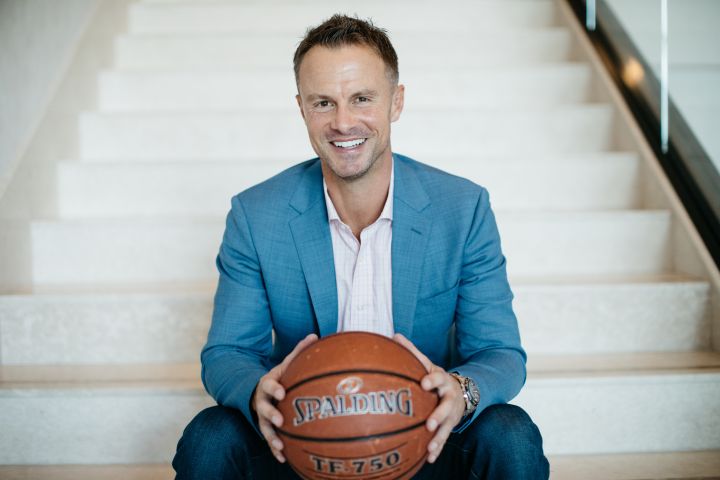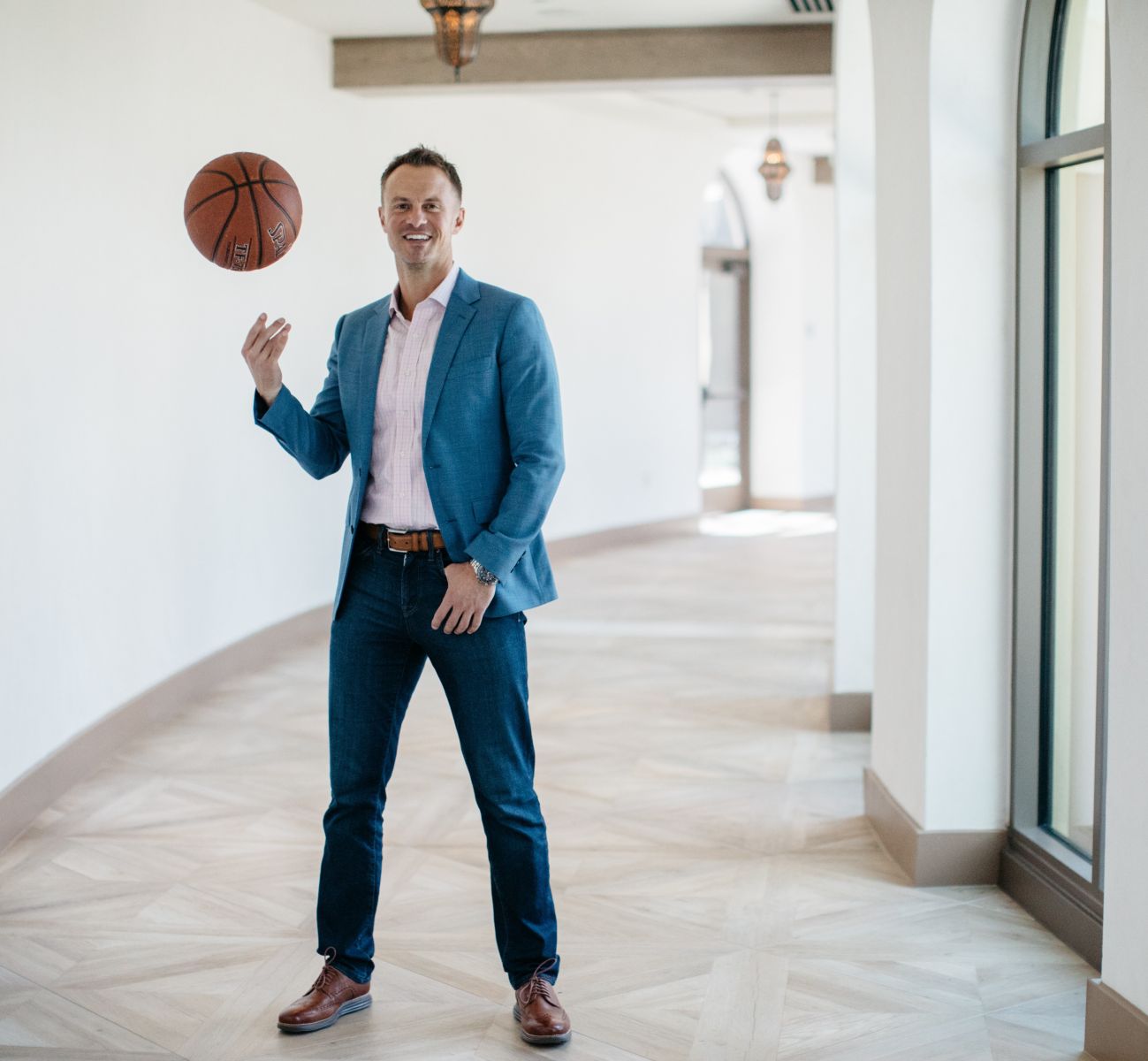Alan Stein Jr. spent more than 15 years coaching some of the best basketball players on the planet, including NBA superstar Kevin Durant, and now he uses those same strategies to help develop elite leaders around the world. Alan and I sat down to talk about how he translates performance on the court to performance in business.

Egon Zehnder: The war for talent rages in sports as in business; how do you identify what is exceptional in athletes?
AS: You need to look at both tangibles—strength, ability, fitness level—and the intangibles—mindset, attitude, and work ethic. Tangibles are important, but intangibles are often key determinants for superstar careers. They reveal not only how coachable players are but also what relational skills and self-awareness they have to know themselves and to relate to others. That does not only apply to athletes but also business leaders.
Egon Zehnder: Can you teach someone to become more self-aware?
AS: In basketball, if a player takes a bad shot in a game, that’s not that big of a deal. If the player who takes the bad shot doesn’t realize that it was a bad shot, that’s a problem. The same applies to business—if a leader makes a bad decision and lacks the awareness about the error that led to the bad decision. It takes openness, vulnerability and trust to become more self-aware and bridge the disconnect between the way you view yourself and the way others see you.
In that context, the quality of the coach is essential. For example, if a player made a bad pass and the ball got turned over, a very average coach will stop practice and yell at the player: “That was a bad pass. You’re costing us points. You need to make a better decision next time or you’re not going to play anymore.” A great coach would stop and say: “OK, that wasn’t the right pass because it was a turnover. Can you tell me what you were seeing? What other options could there have been?” And get him or her to explain the choice. This approach takes emotional intelligence as a coach or leader.
Egon Zehnder: How can you help players or employees be receptive to this type of feedback or coaching style?
AS: I learned a few mantras very early in my career that still work today—in basketball, in business, and even as a parent. The first is “It’s not about me; it’s about you.” I tell coaches and CEOs that “Your people don’t work for you—you work for your people.” It is your job to wake up every day and serve them to the best of your abilities so they can collectively help the team or company accomplish their goals.
The second is “Connect first, coach second.” You have to create the connection, build trust and respect. To do this, you have to find out what is important to them. How do they like to be motivated? How do they like to feel appreciated? What tasks do they love and which ones do this dislike? The last mantra is “Accept it, or correct it.” if you see a behavior that is good, taking you closer to where you want to be, then you should recognize it and praise it. If you see behavior that is not congruent with your culture, with players stepping out of bounds or they're undermining what you're trying to do, that needs to be corrected immediately. The way that you fix it with different people will always vary.
"Tangibles are important, but intangibles are often key determinants for superstar careers. They reveal not only how coachable players are but also what relational skills and self-awareness they have to know themselves and to relate to others."
Alan Stein Jr.

Egon Zehnder: You mentioned you’re not looking for perfection but for progression. How does that work in a world where our mindsets are often set on achieving perfection?
AS: In the history of basketball, there had never been a perfect game played. A perfect game by definition would mean we never miss a shot, we never turn the ball over, the other team never scores a point. There’s no way that’s attainable, so we should focus on playing the best game we’re capable of. Your trajectory as an individual and as an organization are way more important than where you are at the moment. So as long as that ramp toward a goal is going up—even in small steps—you know you’re going in the right direction. I believe progress and process are what should be emphasized and praised much more than the outcome.
Egon Zehnder: Let’s assume you’ve found athletes that are all self-aware, hardworking, and coachable—how do you weld them together as a team?
AS: Your first step is about clarifying roles. The coach has to get everyone to understand their role and embrace their role, which can be one of the hardest parts about coaching or leading people. Getting them to buy into a role that may not be their first preference or that might be a little different than what they actually want—this is where the art and science of coaching comes in. We need to show them this way is what is best for all of us and that the higher we go as a team, the better that is for each individual on the team.
We also need to make sure we value everyone. Think about your own office. There is probably a building services crew that is responsibility for keeping it clean. When is the last time that someone left a note that just said, “I can't thank you enough for allowing me to show up every day to a clean, tidy, and warm environment because that allows me to focus on my job." That's an extreme example, but it’s really important we recognize everyone’s efforts.
Egon Zehnder: What happens when you lose several games in a row? How do you break out of that negative mindset?
AS: One of the most powerful mindsets that I've been able to adopt is the concept of moving to the next play. This is so powerful in business. You lose three accounts in a row, or four or five sales calls don't go well—a novice leader will let that start to snowball, and it will affect their results. Someone that can move to the next play thinks, "On my last five calls, I got denied. So I'm due. I'm ready for one to go through because I believe in it, and I'm going to get this one because I'm already moving onto the next play." This type of mindset requires you to be able to routinely ask yourself, “Are the habits you have today on par with the dreams you have for tomorrow?”
Egon Zehnder: What’s your outlook on the business world—as someone who has seen it from both an internal and external perspective?
AS: I am amazed by the high utility and high transfer between both the sports and the corporate world. While there have been tremendous shifts, the fundamentals of sports and business haven’t changed much and I don’t think they will change. The game is still predicated on passing, shooting, rebounding, defending, and handling the ball. Those primary skills sets haven’t changed and won’t change—but everything else is changed around it. In business, the same holds true. You have a product or service that solves a problem for someone and you deliver more in value than you ask in payment, and you deliver exceptional services, not only for your customers and clients, but for your team member.
That's what makes coaching and business both an art and a science. When you can blend those two masterfully, you can create this amazing environment, culture, and experience that people want to be a part of. And to me, that's what it takes to win a championship and win in business.





